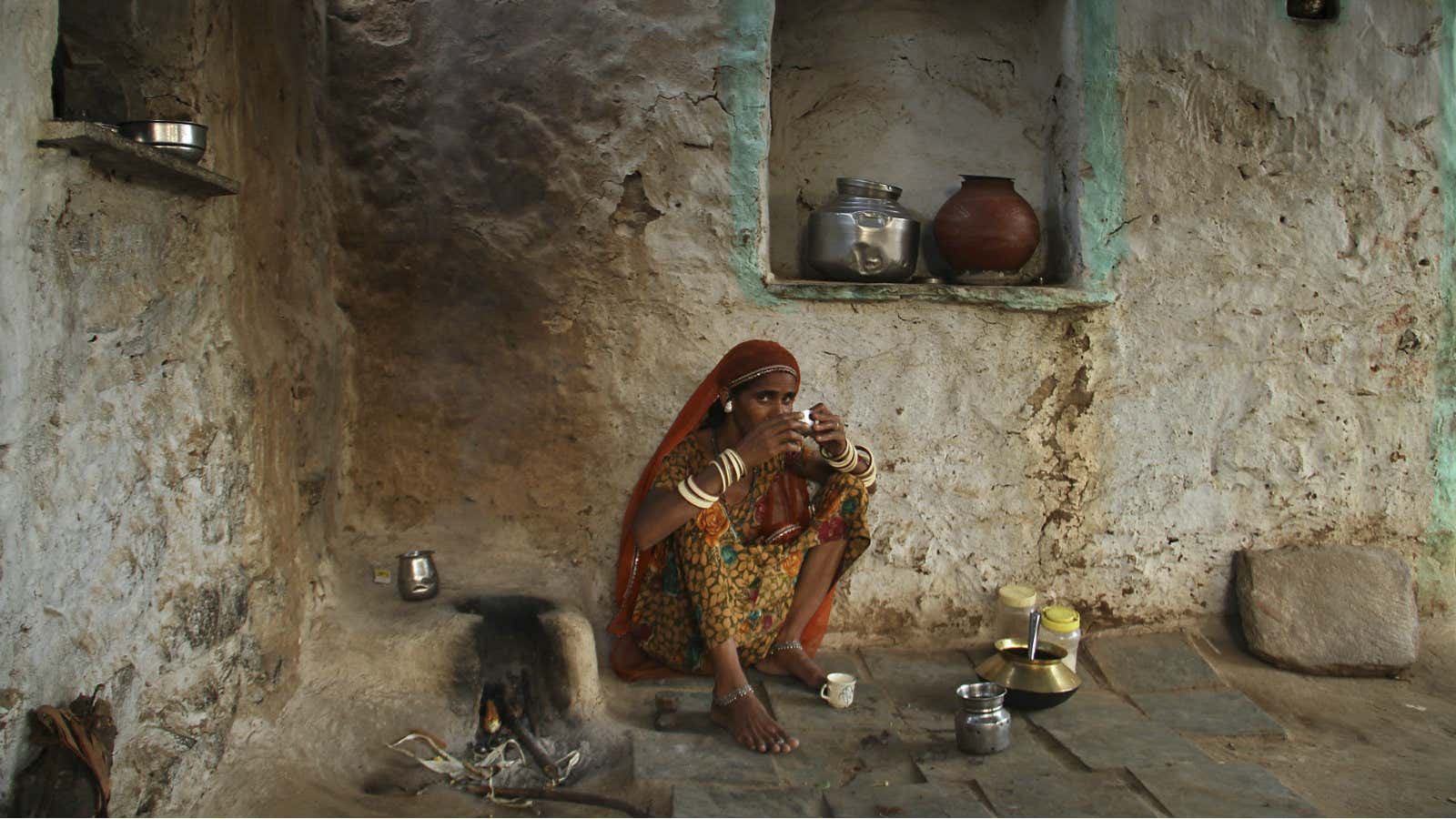This minister’s message to Indian women is simple: “If your alcoholic husband is physically abusive, thrash him.”
When one suffering woman asked Madhya Pradesh minister Gopal Bhargava if it was all right to beat up her abusive spouse with a mogri, the wooden bat traditionally used to wash clothes, he took the idea seriously. After all, Bhargava had been receiving numerous such complaints.
So, at a mass wedding ceremony in the town of Garhakota on April 29, this minister of panchayati raj and rural development in the central Indian state gifted nearly 700 brides mogris. Inscribed on each bat was this message: “Sharabiyon ke sutara hetu bhent, police nahi bolegi” (A gift to beat up drunkards with, the police will not intervene).
“Whenever I visit any rural or urban area in my constituency, women complain about their husband’s drinking habit. They inform me that whatever little they earn is snatched away by their husband for alcohol. They (women) are also subjected to physical violence,” Bhargava explained to the Press Trust of India. “The government or police alone would not be able to solve this problem.”
The minister recommends that the women first explain to their husbands the health risks involved in drinking. If that doesn’t work, there’s always the mogri.
Domestic violence is a big problem across urban and rural India. In 2015, some 461 cases were registered under the Protection of Women from Domestic Violence Act, 2005. This was 8% higher than the year before when the National Crime Records Bureau first began recording this crime. Of the 461 cases, 91 were reported in MP, which, along with Bihar, Kerala, Himachal Pradesh, Rajasthan, and Haryana, accounted for 92% of the cases reported in the country.
For Bhargava, the decision to gift wooden bats was an attempt to tackle this problem, which has resulted in part because of the sale of illegal alcohol in the state. And it comes as movements backed by women have cropped up across India to pressure state governments to enforce stricter laws on the sale of alcohol, or even ban it outright, to end their suffering.
